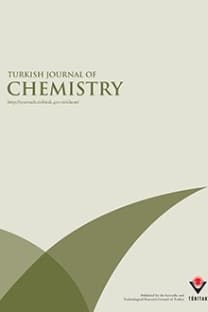Recovery of Copper, Cobalt, Nickel, Cadmium, Zinc and Bismuth from Electrolytic Copper Solution
Turk. J. Chem., 22, (1998), 149-154. Full text: pdf Other articles published in the same issue: Turk. J. Chem., vol.22, iss.2.
Recovery of Copper, Cobalt, Nickel, Cadmium, Zinc and Bismuth from Electrolytic Copper Solution
Turk. J. Chem., 22, (1998), 149-154. Full text: pdf Other articles published in the same issue: Turk. J. Chem., vol.22, iss.2.,
- ISSN: 1300-0527
- Yayın Aralığı: Yılda 6 Sayı
- Yayıncı: TÜBİTAK
Zühre ŞENTÜRK, Bengi USLU, Niyazi YILMAZ, Sibel A. ÖZKAN, İnci BİRYOL
Polymerization of Pyrrole and Thiophene on Polyethylene Adipate Electrodes
Seyfettin ERTURAN, Burcu YALVAÇ, Sena TORAMAN
Recovery of Copper, Cobalt, Nickel, Cadmium, Zinc and Bismuth from Electrolytic Copper Solution
Fırat AYDIN, Recep ZİYADANOĞULLARI, Berrin ZİYADANOĞULLARI, Ömer YAVUZ
The Adsorption Isotherms of the Bleaching of Sun ower-Seed Oil
Heat Treatment of Maceral Groups Obtained From Turkish Bituminous Coals
Nevin Gaye ERBATUR, Elif Sultan VAYİSOĞLU
The amido and bisalkoxo-complexes of [Tri(3,5-dimethylpyrazolyl)borato] molydenum nitrosyl
Some Recursive Relationships Between Acenes and Cyclacenes
Reaction of 3,4-diformyl-2,5-dimethylpyrrole with 1,2(substituted) diphenyl-1,2-diaminoethanes
The adsorption isotherms of the bleaching of sunflower-seed oil
The Removal of Organic Sulfur from Two Turkish Lignites by Chlorinolysis
Yücel Y. KADIOĞLU, Semra KARACA, Samih BAYRAKÇEKEN, M. Şahin GÜLABOĞLU
